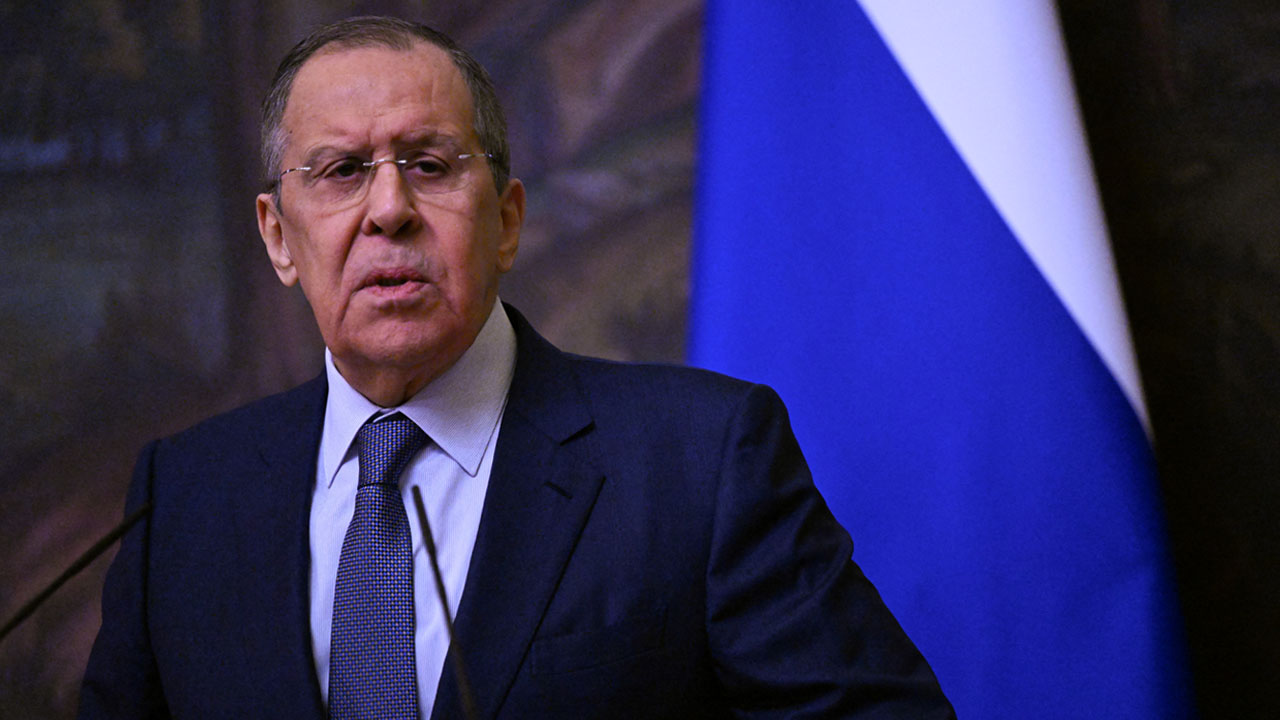
Russia’s foreign minister will visit India for a two-day visit beginning Thursday, officials said, likely to press New Delhi to resist Western pressure to condemn the Ukraine invasion.
India has abstained from UN resolutions censuring Russia and continues to buy Russian oil and other goods. US President Joe Biden last week described India as “somewhat shaky” on Russia.
Sergei Lavrov’s trip coincides with visits by British foreign secretary Liz Truss and Daleep Singh, Washington’s chief sanctions strategist.
Truss and Singh, the US Deputy National Security Advisor for International Economics, were expected to urge India to assist in Western efforts to isolate Russia economically.
Singh “will consult closely with (Indian) counterparts on the consequences of Russia’s unjustified war against Ukraine and mitigating its impact on the global economy,” the White House said.
‘New world order’
Lavrov was due to arrive in India from China, which has also refused to condemn the invasion and has provided a level of diplomatic cover for an increasingly isolated Russia.
In a video released ahead of a meeting with Chinese Foreign Minister Wang Yi, Lavrov said the world was “living through a very serious stage in the history of international relations”.
At the end of this reshaping of global relations “we, together with you, and with our sympathisers will move towards a multipolar, just, democratic world order”, Lavrov said.
Lavrov was due to attend meetings hosted by China about Afghanistan involving diplomats from the United States and the Taliban-led country’s neighbours — but not India, which was not invited.
India’s relations with China deteriorated sharply after 20 Indian troops and four Chinese soldiers died in a brawl on their disputed Himalayan border in 2020, although Wang visited India last week.
– Old friends –
India and Russia have had a close relationship for decades.
New Delhi, which describes Moscow as its “longstanding and time-tested friend”, sources most of its key military hardware from Russia.
India’s Russian-origin arsenal includes about 3,500 battle tanks, most of its combat Sukhoi and MiG aircraft, its only aircraft carrier in service, eight non-nuclear submarines and four destroyers.
India also has large Russian orders pending including a $5-billion deal for S-400 air defence systems — of which the first deliveries began last year — as well as four frigates and one nuclear-powered submarine.
India has however been diversifying with big imports from France, the US and Israel.
It has also been making more equipment itself, including an aircraft carrier which is undergoing sea trials.
India meets about 85 percent of all its energy needs with imports, and the recent rise in oil prices because of the Ukraine war is causing additional hardship for hundreds of millions of Indians.
New Delhi has been buying up discounted Russian oil and is working with Moscow on a rupee-rouble trade mechanism to facilitate trade, according to media reports.
A team from Russia’s central bank is in India this week to discuss payment mechanisms, the Hindu daily reported.
“When the highest god of the West, US President Joe Biden, has already said that India is shaky on Russia and we have ignored it already, why should we be worried about the way some in the West see this visit?” New Delhi-based Russia expert Nandan Unnikrishnan from the Observer Research Foundation told AFP.
“We should look at everything from the prism of our own national interests. The Western perspectives won’t determine our national interests.”



